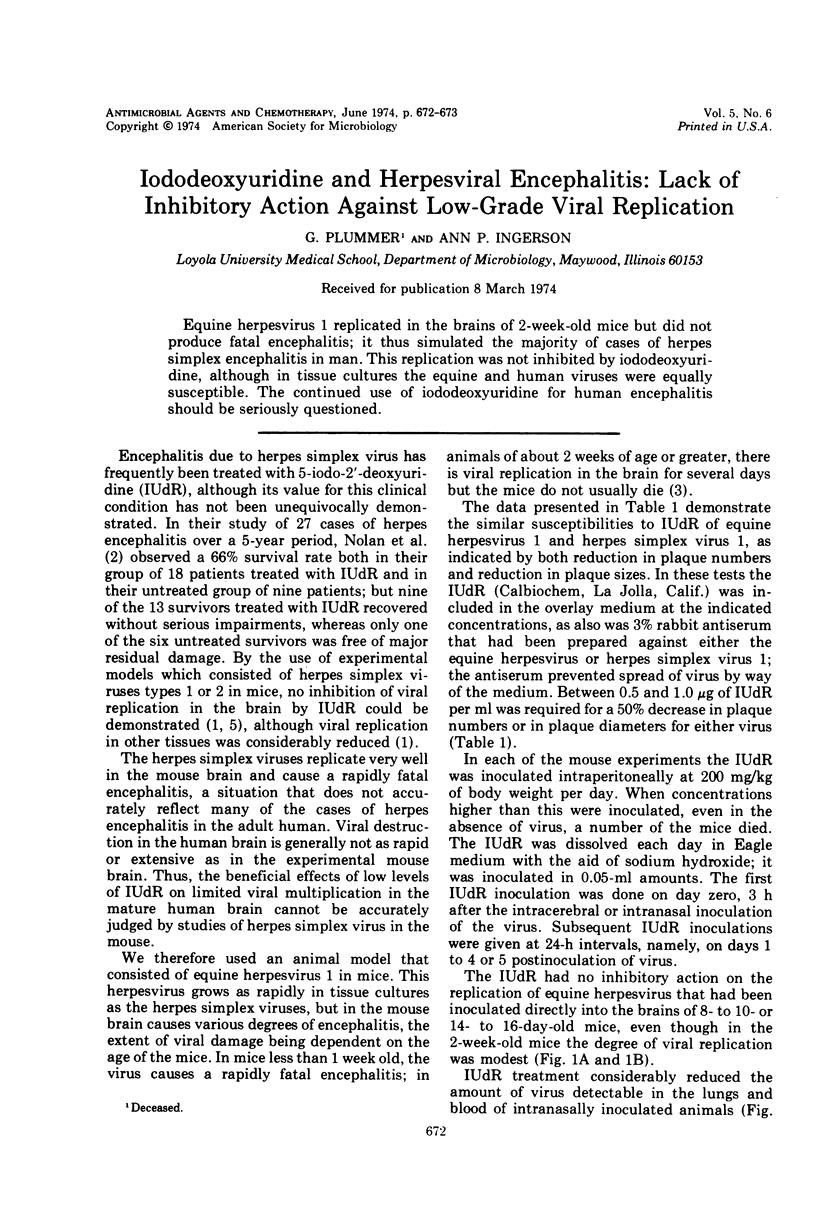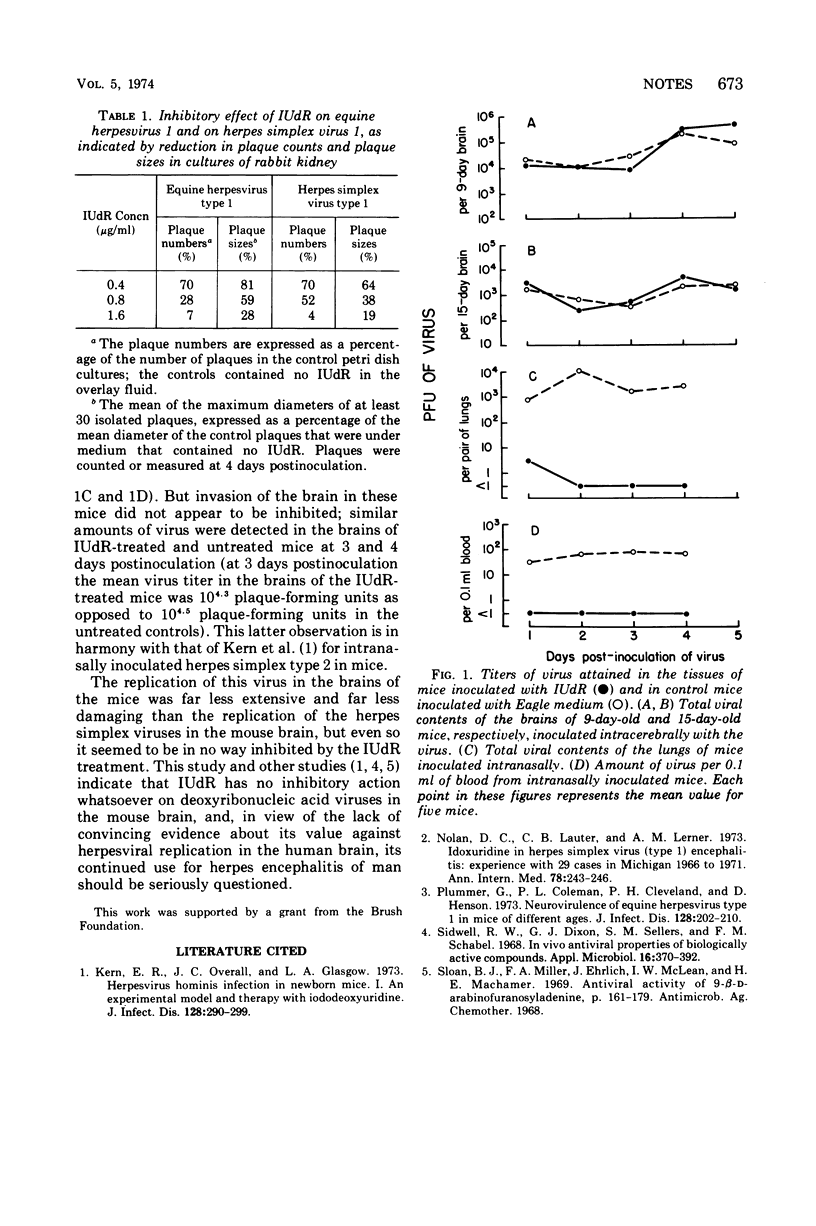Abstract
Equine herpesvirus 1 replicated in the brains of 2-week-old mice but did not produce fatal encephalitis; it thus simulated the majority of cases of herpes simplex encephalitis in man. This replication was not inhibited by iododeoxyuridine, although in tissue cultures the equine and human viruses were equally susceptible. The continued use of iododeoxyuridine for human encephalitis should be seriously questioned.
Full text
PDF

Selected References
These references are in PubMed. This may not be the complete list of references from this article.
- Kern E. R., Overall J. C., Jr, Glasgow L. A. Herpesvirus hominis infection in newborn mice. I. An experimental model and therapy with iododeoxyuridine. J Infect Dis. 1973 Sep;128(3):290–299. doi: 10.1093/infdis/128.3.290. [DOI] [PubMed] [Google Scholar]
- Nolan D. C., Lauter C. B., Lerner A. M. Idoxuridine in herpes simplex virus (type 1) encephalitis. Experience with 29 cases in Michigan, 1966 to 1971. Ann Intern Med. 1973 Feb;78(2):243–246. doi: 10.7326/0003-4819-78-2-243. [DOI] [PubMed] [Google Scholar]
- Plummer G., Coleman P. L., Cleveland P. H., Henson D. Neurovirulence of equine herpesvirus type I in mice of different ages. J Infect Dis. 1973 Aug;128(2):202–210. doi: 10.1093/infdis/128.2.202. [DOI] [PubMed] [Google Scholar]
- Sidwell R. W., Dixon G. J., Sellers S. M., Schabel F. M., Jr In vivo antiviral properties of biologically active compounds. II. Studies with influenza and vaccinia viruses. Appl Microbiol. 1968 Feb;16(2):370–392. doi: 10.1128/am.16.2.370-392.1968. [DOI] [PMC free article] [PubMed] [Google Scholar]


